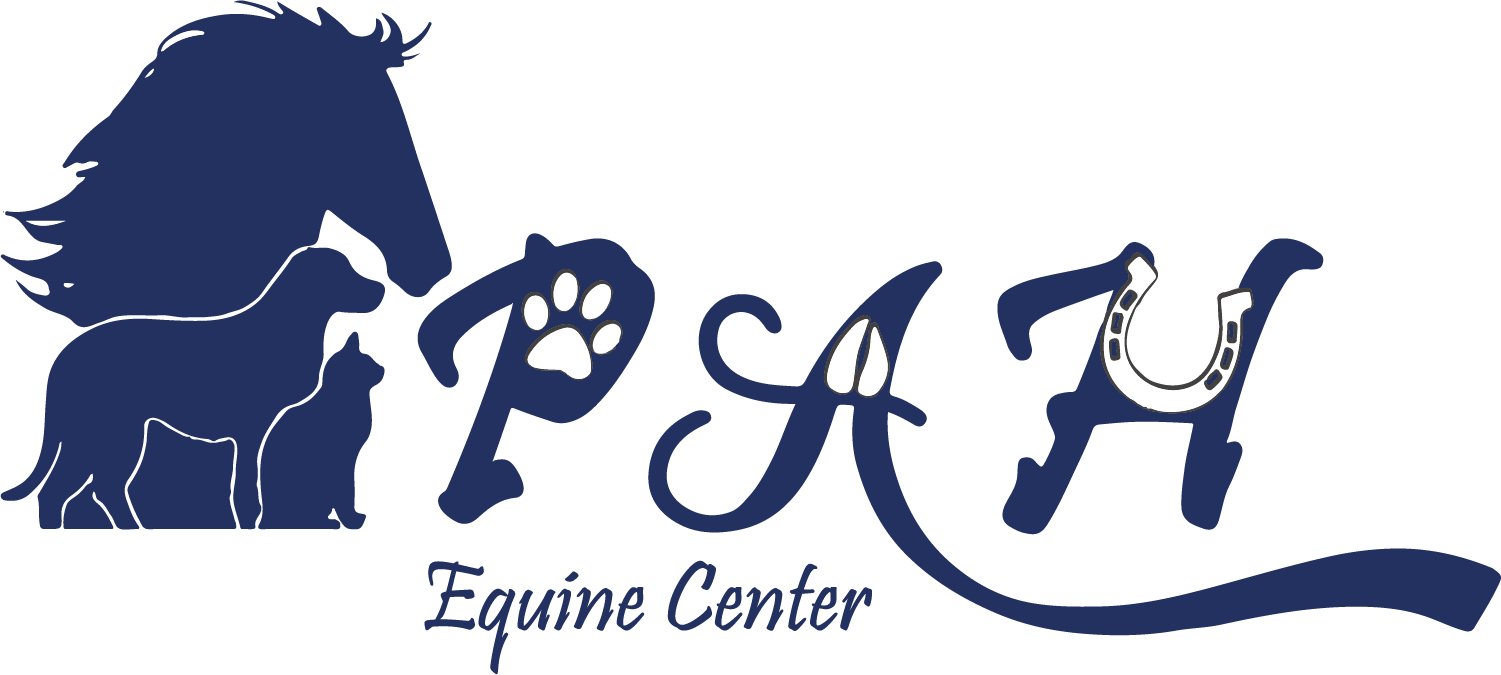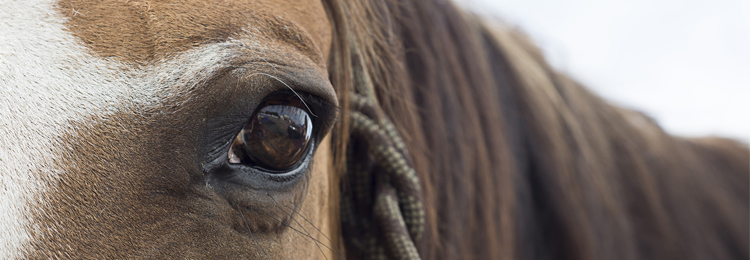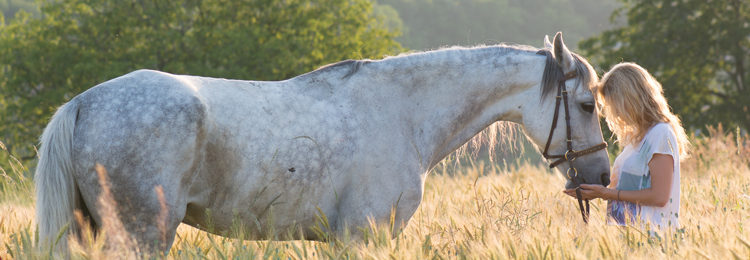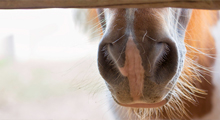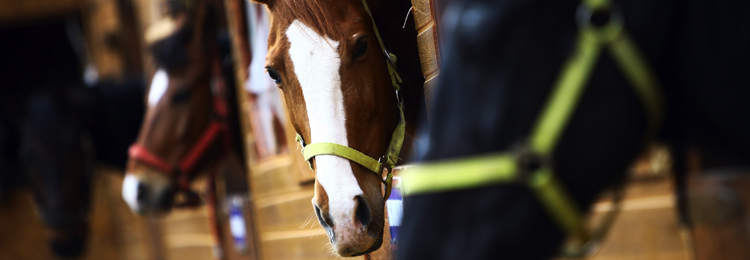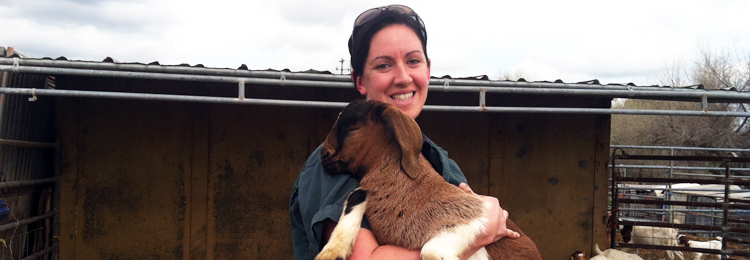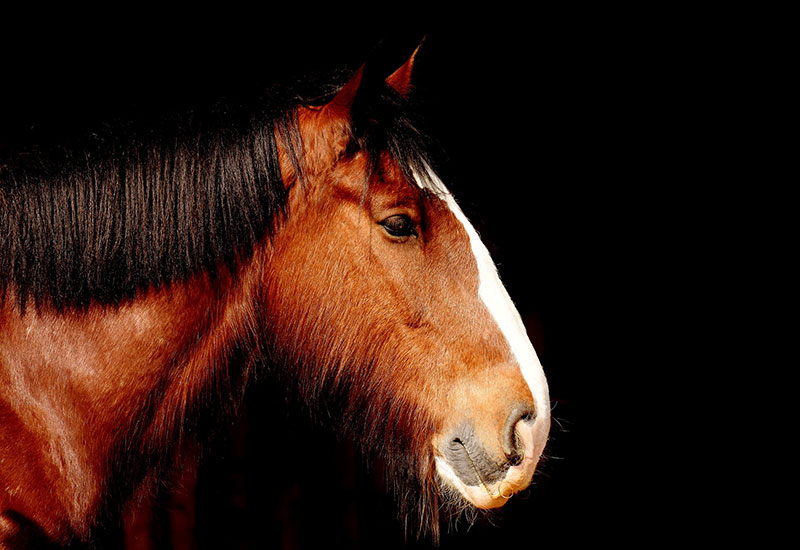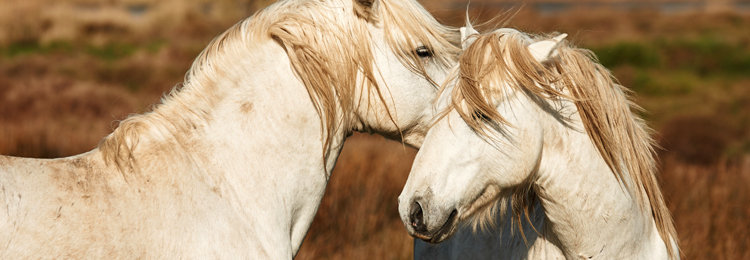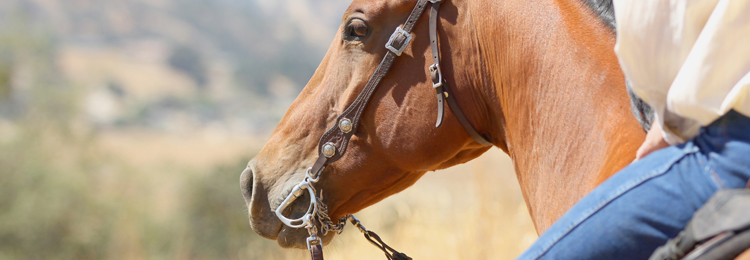Equine Ophthalmic Emergencies
Horses are prone to eye injuries due to the location of their eyes on their head. Trauma to the eye is a true equine emergency and should be evaluated by a veterinarian immediately. Some clinical signs of an ophthalmic emergency include: Corneal ulcers Lacerations (scratches) of the cornea occur due to external trauma. Common sources…
Techs are the backbone of our practice
National Veterinary Technician Appreciation week is October 15-21, 2023. We wanted to take this opportunity to thank all the veterinary technicians that work here at Prescott Animal Hospital Equine Center. The clinic could not function without the work they do on a daily basis; they are the backbone of our practice. Multiple hats Having this highly trained,…
Straight from the Horses’ Mouth
The How’s and Why’s of Equine Dental Care Horses have a unique set of chompers that warrant personalized care to keep them comfortable and healthy at all stages of life. As an animal that evolved to graze, the equine species possesses teeth meant to serve them well on open range, spending the vast majority of…
Equine Pre-Purchase Exam
The excitement of buying a new horse is for some of us very similar to the excitement we felt when we bought our first car. You spend an extended period of time shopping for just the right fit, and when you find it you can’t wait to get home and go for a ride. Unfortunately…
Horse Health: Vaccinations
How many times do both owners and veterinarians take the “simple” things for granted? The last time you called your veterinarian to schedule your horse’s routine shots, how much thought did you put into what you were doing? For example, what does your horse need to be vaccinated for? Wouldn’t it just be simple to…
Backyard Goat Ownership
Need to Know Basics of Goat Healthcare A recent surge in pet goat ownership has been seen across the country, and the Prescott area is no exception! Goats are smart, wonderful companions, and due to their size can be housed in fairly small yards. They are truly amazing creatures, and never cease to amaze their…
The Geriatric Horse
An older horse is usually a treasured member of the barn. Keeping the geriatric horse healthy and happy is a labor of love. A horse is considered to be geriatric if it is over 20 years of age, but previous management can influence the overall health of the horse in its golden years. Going back…
Why is my horse so hairy?
Last month, we learned about Equine Metabolic Syndrome (EMS) and laminitis in Timber, a middle-aged gelding. This month we are going to focus on a similar metabolic disease seen typically in older horses. This is the story of Spud, a 21-year-old Appendix Quarter Horse gelding, used as a children’s light riding horse. I met Spud…
Equine Parasite Prevention
Farm animal and equine parasite prevention Parasites are never a benefit to an animal Parasites are organisms that derive their nourishment and shelter from other creatures (hosts), such as your horse and other animals. Without treatment, most parasites live their entire lives with a host. As the host, a parasite’s presence is never a benefit…
Pain Management in the Horse
Pain is Important Pain management in the horse is an everyday part of the equine veterinarian’s practice. Therefore a good working knowledge of the various analgesic medications available is essential. However the need for knowledge of pain management goes beyond just the veterinarian, as it is also important that horse owners have a basic understanding…
What's Next
Call us or schedule an
appointment online.Meet with a doctor for
an initial exam.Put a plan together for
your pet.

